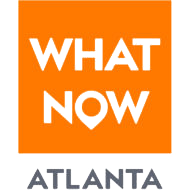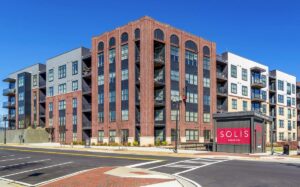Sign up now to get our Daily Breaking News Alerts
5. Always use Protection
4. Timing
3. Be the Driver
2. Strength in Numbers
1. Knowledge is Wealth
There are a myriad of components to consider before entering into a new lease or renewing an existing lease. If mishandled, like a bad tattoo, you may look back at your lease with regret when its already too late. Here are five imperative items in no particular order:
Knowledge is Wealth– This has nothing to do with the business terms or financial obligations of the lease and purely the dynamics of a specific submarket (specialized subdivision of a market). Understand the submarket in and out. Understand what competitors are in close proximity to you and how this will influence your sales– or even how this will affect or limit what brands you can sell.
Understand the tenant mix within walking distance or even within the same center– do they attract your targeted customers? Understanding the trends, traffic patterns & flow, and of ingress/egress for customers, will factor into your businesses success. Understand the demographics in the area. Specifically focus on a one and three mile radius. Understand parking limitations and how will this detour potential clients from visiting your site (gyms, grocery stores, etc eat up parking).
No matter how good the concept or how strong the reputation of an existing business, knowing the elements of a submarket, and specific location, can make or break your business.
Strength in numbers –You may want the location, but trust me, if you have a successful business, the landlord will want you as a tenant equally as bad.
An empty building is only worth the bricks and mortar (if that). The true value is in the economics and terms of the lease(s). It’s always best to negotiate on a space using at minimum, two separate properties, owned by two different property owners. This way it’s possible to establish benchmarks and gain the valuable understanding of what the market is offering.
Be the Driver, not the passenger – Never let the real estate drive your business– always let your business drive the real estate you choose. This philosophy is simple: don’t settle because you feel nothing else is out there and don’t feel pressured to take a larger space than you need with the pipe dream that, “We will grow into it.”
Don’t agree to unfavorable lease terms because you are 100 percent committed to one and only one space– like a rabbit in a Magician’s hat, your leverage is gone. Also, don’t let the emotions of real estate or ties to one property or location cloud your judgment and overrule your original budget constraints. Ultimately, the financial strain that the extra and unused square footage can sink your business. Each piece of the total square footage should be a supporting element to improving your business and generating sales or income– unused space can be the anchor that sinks your business.
Understanding your business, the realistic growth patterns, and the specific value add uses of every square inch in the space, allows for efficient operations, control of expenses, and will help lead to longevity and financial strength. There are other business terms in a lease that can account for your growth in the future versus initially signing for too large of a space. In the first year, it is imperative that money is reinvested into the company rather than wasted on excess square footage.
The essential ingredients of life is Timing – It is in our nature to procrastinate, delay, and put off. Specifically on renewals, tenant’s make the detrimental mistake of being reactive and not pro-active in lease negotiations. They wait for the property owner to contact them first. Trust me, the landlord will wait as long as possible, because the less time you have to properly evaluate the market, perform due diligence, evaluate alternative properties, and realistically weight you’re the options, the more advantageous it becomes for the landlord, and they know moving is not an option– your threat of moving becomes nothing more than a bluff.
Timing directly correlates with negotiation leverage. We recommend our clients begin the process at minimum one year out from lease expiration.
Always use Protection – It takes years and numerous completed transactions to have your finger on the pulse of the real estate market and a vast knowledge of the concessions, legal jargon, and business terms associated with a lease. Landlords almost always hire real estate brokers to represent their interest so you should protect yourself and interest by hiring a tenant rep advocate to protect yours.
It is the landlord’s objective to increase the value of their asset by negotiating the highest rent possible, while giving up the least amount of dollars (free rent, tenant improvement dollars, escalations, etc). A third party tenant advocate allows a real estate professional to negotiate tirelessly on your behalf, keeping you, the client, at arms length and ensuring your relationship with the landlord does not deteriorate.
Landlord’s take you to lunch, give you tickets to shows, or send chocolates, because they want to both have a solid relationship with you and gain your trust. Do not forget how landlord brokers make their money: representing their clients and the landlords– not you, the one time deal.





15 Responses
In Atlanta, prospective firms should also want to target African-Americans as much as possible, and cater to a consumer with very weak spending. This is the worst time I’ve ever witnessed to do business here. Hence all the things going under.
Is this an article or paid advertisement? What Now Atlanta has such blurry lines…
hi that chris lopez– this is an article from our commercial real estate column– would love to get your feedback. shoot me an email: calebwhatnowatlanta.com
–cjs
This article gives you a whole lot of words, without saying anything at all. I don’t see anything about buying equipment, book keeping, how to get the best value on computer supplies, furniture, how to get a bargin when negotiating a lease, or when to make the decision to lease or buy. I guess some people just like to hear themselves talk.
I’m going to have to agree. Almost everything in here is common sense. Reading that kind of felt like I just paid 2 installments of $19.99 to get a “secrets of real estate book”. Particularly when you realize that the last “piece of advice” is nothing more than self promotion…
hi urbanist– thanks for your feedback. we just launched this column and are working out the kinks. moving forward, we want to provide the WNA community with new and useful information. what would you like our commercial real estate experts to blog about?
best regards,
–cjs
No question the items above are basic and generic – RE 101. Also, original question was, what should a TENANT KNOW, it had nothing to do with restaurants. WNA presents the questions – ranges from Atlantic Station to Midtown Mile to 5 thing to know, etc….Please send WNA specific questions to filter and we will address on weekly basis. Thanks!
I just think that if you’re going to try to help people who are exploring the potential of going into business, you should help them with some specific items of going into business, not common sense generalities like “know your submarket”. For example, if I’m a to be restaurateur, I might want to know more about the logistics of food/liquor distribution, or what the best systems are for running reservations, or helpful tips on navigating the liquor license process, etc. These are things that would be helpful to first time restaurateurs.
hi urbanist– keep in mind that shaun and dotan (our bloggers for this column) are in the real estate business. any ideas for what you’d like to read that fits their occupation?
any and all feedback is much appreciated!
–cjs
Well, I think this site does a great job in general, with respect to keeping its readers in the loop regarding what’s going on with commercial real estate in Atlanta. With respect to this specific article, I saw the headline, and thought it would be an interesting read. I read the article, and was dissapointed, as I felt like it simply didn’t give any useful information to potential restauranteurs. The information was so generalized that it really applied to anyone looking to lease commerical space, and didn’t really have anything to do with things restauranteurs should know. It was also something that I would hope that anyone who is about to run a business would have the sense to know. Lastly, even if I felt like the information was useful, it lost all of it’s impact when I got to the last “point”, which turned out to be a thinly veiled advertisement for Weinstock’s business.
Apologies if this sounds harsh, as I’m not trying to bash anyone here, just offering my opinion. I just think misleading columns, and bad advertisment can turn people away, and that would be a shame.
hi urbanist– you’re not being harsh– you’re being honest. we dish the truth and we can also handle it. a quick read of your comments and it’s easy to conclude you’re pretty knowledgeable in this arena. please remember, just because you know something, doesn’t mean everyone else does.
like i said, if you have specific real estate related questions that you feel the WNA community would benefit from, we’d love to hear those ideas. shoot me an email: calebwhatnowatlanta.com
thanks for your thoughtful comments and readership.
–cjs
Just wanted to add one more thing: I think that columns dedicated to ideas for new development could be a great thing for this site. For example, these could be columns dedicated to the theories of urban development, or coluns allowing people to discuss what type of development they would like to see in certain areas, and why. There are a lot of excellent sites in Atlanta that remain empty (and yes, parking lots count as empty), and even if only for entertainment’s sake, I think it would be interesting to hear what the community has to say about what would do well in certain spaces. Who knows, maybe those suggestions could/would reach the ears of the site owners/landlords, and help influence the development of in-town real estate. The posts about 905 Juniper & the potential cocktail den were great, as it lets people open up about certain areas/sites and opine on the viability of certain businesses. I think MOST of the people that read this site are urban proponents and “get” what that is all about. It’s that kind of opinion and voice that could help push Atlanta in the right direction, not the wrong direction (i.e. up 400).
hi urbanist– great idea! do you mind if i email you at the hidden addy you provided to post comments?
–cjs
Nope. Go for it…
Some insider info would be interesting. Something like “ABC Company is getting really desperate to fill space at XYZ and we here they have been offering rates as low as $10/foot to fill the place”.
Also, it would be interesting to find out what some people have had to pay for space lately. Since there is going to be 3 spots opening in VaHi, what do you hear they want?